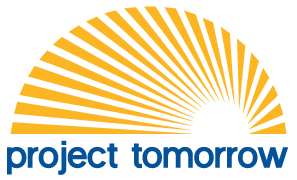
Prior to the participation window of a survey, Project Tomorrow will make the content available for review via your choice of Google Docs or PDFs.
2024-25 Classic Speak Up
Collect insights from your K-12 students, families, educators, and administrators across various themes related to the role of technology in education.
- Students K-2 Survey
- Students 3-5 Survey
- Students 6-12 Survey
- Family Survey
- Educator Survey
- School Leader Survey
2024-25 Speak Up Snapshots
AI in Education
Assess your school or district’s stakeholders’ understanding of AI and its current applications within the school community, gauge awareness of relevant policies or guidance, and gather perspectives on the benefits and concerns associated with AI in education.
- Students 6-12 Survey
- Family Survey
- Educator Survey
- School Administrator Survey
- District Administrator Survey
Closing Learning Gaps
Secure timely feedback on your school or district’s efforts to address the lingering effects of the pandemic on students’ school and learning experiences. Your local results offer valuable insights into the effectiveness of tutoring programs, MTSS initiatives, and key equity considerations, including the needs of ELL and SPED students.
- Students K-2 Survey
- Students 3-5 Survey
- Students 6-12 Survey
- Family Survey
- Educator Survey
- School Administrator Survey
2024-25 National Speak Up Surveys
K-12 Cybersecurity Awareness and Preparation
The Speak Up Cybersecurity Survey is a national survey focused on understanding how K-12 school districts are responding to cybersecurity risks and threats.
- K-12 Technology Leader Survey (CIO, CTO, Tech Directors)
- K-12 Education Leader Survey (Superintendent, Curriculum Director, Business Director, etc.)
K-12 Universal Design for Learning (UDL) and Assistive Technology
This brief survey, designed to take approximately 5 minutes to complete, is a national data collection
effort, which will help inform future work on Universal Design for Learning (UDL) and the use of Assistive
Technology in K-12 school districts.

